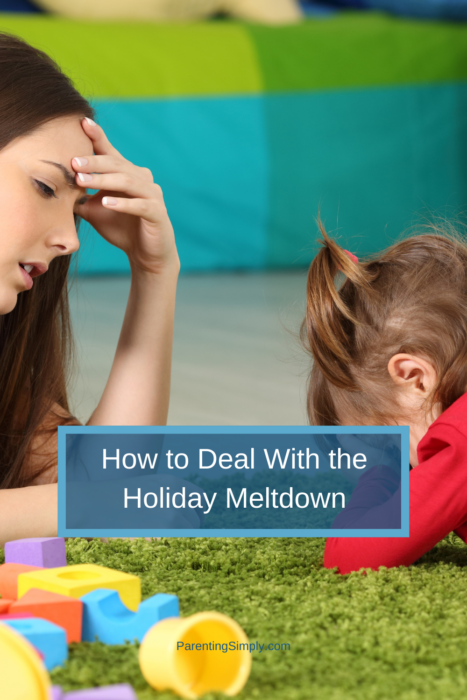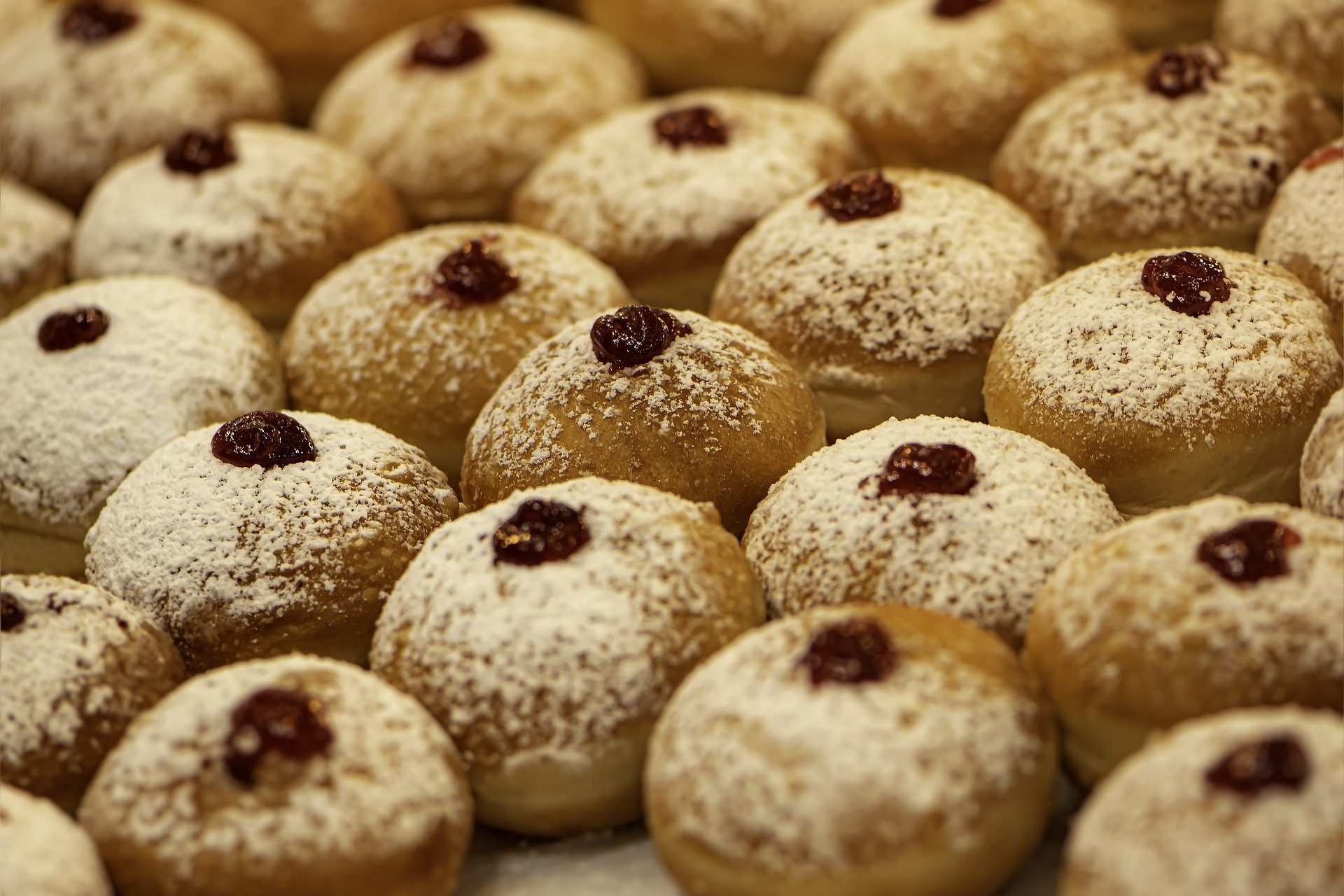
Chanukah can be so exciting for both parents and kids. Gift giving, parties, extra sweets are great, but unfortunately, they also can be tough to maneuver for children. It often sets the stage for poor behavior. Kids might not like their gifts (and be vocal about it!) they may act rudely at parties, not share their new toys, and meltdown!
Here is how we can avoid the most common misbehaviors:
Gift Giving
Children getting and giving gifts can be a minefield. Some kids might be disappointed and not have be savvy enough to avoid showing their disappointment. This is often misconstrued as a lack of gratefulness when it is just poor knowledge of social niceties. You can do the following:
when it is just poor knowledge of social niceties. You can do the following:
Prepare: Before Chanukah starts, sit down with your children and explain to them what they can and cannot do when they receive gifts.
You can say: “In our family it is important to be polite and grateful. When you get a gift, even if you don’t like it, it’s important to say thank you!”
There is always one child in the family, who is perplexed by this and will say, “But, isn’t that lying to say ‘thank you’, if you don’t like it?”
Take this seriously! It’s an honest question (pardon the pun!) You can answer, “That is a great question! It is not lying to say ‘thank you’. You don’t have to say, ‘I love it!’ but you can say, ‘Thank you for thinking of me and buying me a gift.’ That wouldn’t be lying at all. We want to make sure that we don’t hurt anyone’s feelings.”
Roleplay:
You can also role-play with your children. You can pretend to give silly gifts to each other, like a head of broccoli or toilet paper. You can then practice making a grateful face and saying “Thank you!”
Make a signal:
It is helpful to make up a hand signal or gesture for your kids that will remind them to behave appropriately and gratefully in a public situation. You can say, “Let’s make a signal, if we see each other forgetting to be polite. I will give you a thumbs up or I will wink with my eye to remind you to just ‘thank you’, nothing else!”
Not Sharing Their New Toys
This is so common and the antidote is counterintuitive but works: Tell your kids they don’t have to share their new toys. Prepare kids before the gift-giving by explaining to them, “When someone gets a new toy, they need time to explore, figure out how it works, and play with it. That takes time. Maybe after they do that, they will be able to share it with you, but when they first get a toy it’s just too hard.”
Inevitably, allowing kids not to share, makes them more willing to share their toys. It worked for our family every time!
Acting Rude at a Party
This year during a pandemic, we probably don’t have to worry too much about this, but it is good information to have. Kids innately don’t know how to act at a party and it would be helpful for them if someone outlined the rules beforehand.
You can discuss beforehand, “Let’s review party etiquette. Etiquette means how to polite and act kindly in different situations. When we use good manners, the party is more fun. We actually get treated better by others if we know how to treat others well.”
Some important manners to remember are:
Important words: “Always say hello to your hosts when you come in. Make sure to use ‘please’ and ‘thank you.” It’s important to say ‘thank you for having me’ when you leave.”
Important rules: Explain to children that even if they want that piece of cake or want to be first in line for the game, they need to wait and should take turns. They shouldn’t ask for seconds until everyone has had their first helping of cake or candy. They might also need a reminder on how to act in someone else’s house. We don’t go into someone’s refrigerator without asking or go into people’s rooms without permission.
Don’t forget to role play. This helps children solidify and practice these skills so it will be second nature to them.
Won’t Talk to The Relatives
Again, this year, when parties are limited, you might be able to avoid this pitfall. However, we will hopefully be getting back to normal soon. It’s important to remember that there are many children who are overwhelmed with crowds and new people. They need some time to get acclimated.
Let them know beforehand: “There will be a lot of new people at this party. They will come say hello and maybe even want to kiss or shake your hand. I will stay with you. However, it is important to say ‘hello’, make eye contact, and answer some simple questions, like how old you are and what grade you are in, and where you go to school. Answering those questions is important, it is part of being polite and kind. Also, they will probably leave you alone after that and you can go play.”
If your kids feel uncomfortable kissing relatives they don’t know, teach them to say, “I don’t like kissing so much, but I can shake your hand.”
Make sure to role-play. This is especially important for your slow to warm up child, making them better able to handle many different social situations.

Eating Too Many Sweets
Traditional food, especially Chanukah treats, like jelly donuts and chocolate gelt, is always a special part of the holiday. However, too much, and children are bouncing off the walls or complaining that they feel sick.
You can prepare them beforehand: “There’s going to be a lot of sweets at the party. Aunt Hannah is a great cook. Eating too many sweets makes us hyper and also could give us a stomach ache. I’m not going be able to watch you the whole night so you’re going to have to make some good choices about what to eat.”
Some families give a limit to how many sweets a child is allowed to have at a party and allow them to choose what they will eat.
The Party Meltdown
Most kids, although they look like they are having a great time, can become overstimulated by the noise, music, sweets and the crowd. They become tired and can’t manage it all. It’s best to have a time limit on how long you are willing to stay at the party with young children. Look for signs that your child has had enough, (whining, running around in circles or fighting with the other children). Then make a quick exit before a full tantrum occurs.
You can prepare, even your young children before:
You can say, “When we go to parties it’s a lot of fun. There is loud music, lots of people, lots of food, lots of gifts which means lots of excitement. This is great, but sometimes it feels like too much. You might feel like your body it’s getting out of control, you might feel jumpy, and whiny. Come find me and we will help you find a place to get calm.”
Be aware, there is usually an after-party meltdown. Kids might complain and whine about silly things. “My new car is red, not blue! I wanted blue!”, “That was a stupid party!” This makes them sound ungrateful and spoiled. Don’t get pulled in, or take what they are saying seriously. It is just a release of all the pent-up tension and stimulation that they just experienced. Try to get them home as quickly as possible, maybe give them a calming bath, a back rub and let them have some quiet time.
These simple strategies can help your family to have a memorable Chanukah without getting overwhelmed or stressed out!
